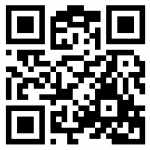Medical assisting is one of the careers whose demand in the United States in on the increase. According to the U.S. Bureau of Labor Statistics, the country had 591,300 medical assistants in 2014. A large number of the assistants serve in different areas including hospitals, outpatient clinics, physicians’ offices, and other types of health-care facilities. The multiplicity of areas in which medical assistants can work and the roles that the assistants perform show the immense contributions that these individuals make to the health-care sector.
To become a medical assistant, you need to have been enrolled in any of the medical assisting training programs that are offered by different colleges. When you enroll in a medical assisting training program, you will be trained and examined to become a certified medical assistant, which will allow you to perform the duties of medical assistants.
What are medical assistants and what do they do?
According to the American Association of Medical Assistants, medical assistants are medical personnel who work alongside physicians mainly in ambulatory or outpatient care institutions, such as clinics and medical offices. The U.S. Bureau of Labor Statistics also notes that medical assistants perform clinical and administrative tasks in physicians’ offices, hospitals and other health-care establishments.
It is important to note that if you work as a medical assistant, your duties will vary based on where you are working, your specialty, and the capacity of your employer. The fact that there are many tasks that you can perform as a medical assistant shows how dynamic the job is.
Specific job responsibilities of medical assistants
Medical assistants are trained across different fields to be able to perform clinical and administrative duties. For this reason, they have to multi-task all the time. Their role in the health-care sector is therefore pivotal. Here are some of the responsibilities of a medical assistant:
Administrative duties
- Greeting patients
- Answering telephones
- Updating and keeping the medical records of patients
- Filling insurance forms and coding information
- Making arrangements for hospital admissions and lab services
- Scheduling appointments
- Handling billing, correspondence and bookkeeping.
Clinical duties
- Recording patients’ medical histories
- Giving details about treatment practices to patients
- Readying patients for examination
- Helping patients during examination by physicians to make the patients feel at ease
- Taking and preparing specimens for laboratory examination
- Doing basic lab tests
- Advising patients in regard to special diets and medication
- Authorizing prescription refills as instructed by the physician
- Preparing and giving medications as instructed by the doctor
- Taking blood samples from patients
- Removing patient sutures and replacing dressings
- Recording patient electrocardiograms
Demand for medical assistants
As noted above, the demand for medical assistants has been on the rise in the United States. Specifically, the growth in the demand for medical assistants is attributed to the following reasons, as noted by the American Association of Medical Assistants:
- There is an envisaged increase in the number of offices for physicians and outpatient care establishments. As these establishments increase in number, there will be a concomitant increase in the demand for medical assistants.
- Technological advancements imply that more medical assistants will be required by physicians to help in carrying out various tasks.
- There is an increasing number of elderly people in the United States who need care. The more medical care is required, the higher the demand for medical assistants will rise.
Based on their training, medical assistants have a lot of work to do in the health-care sector. The dynamic nature of the job is demonstrated through the fact that medical assistants have to multi-task by performing a wide range of administrative and clinical tasks in health-care facilities. Therefore, as the need for good health-care services increases, medical assistants will continue playing a critical role in the health-care industry through the provision of their services.







Speak Your Mind